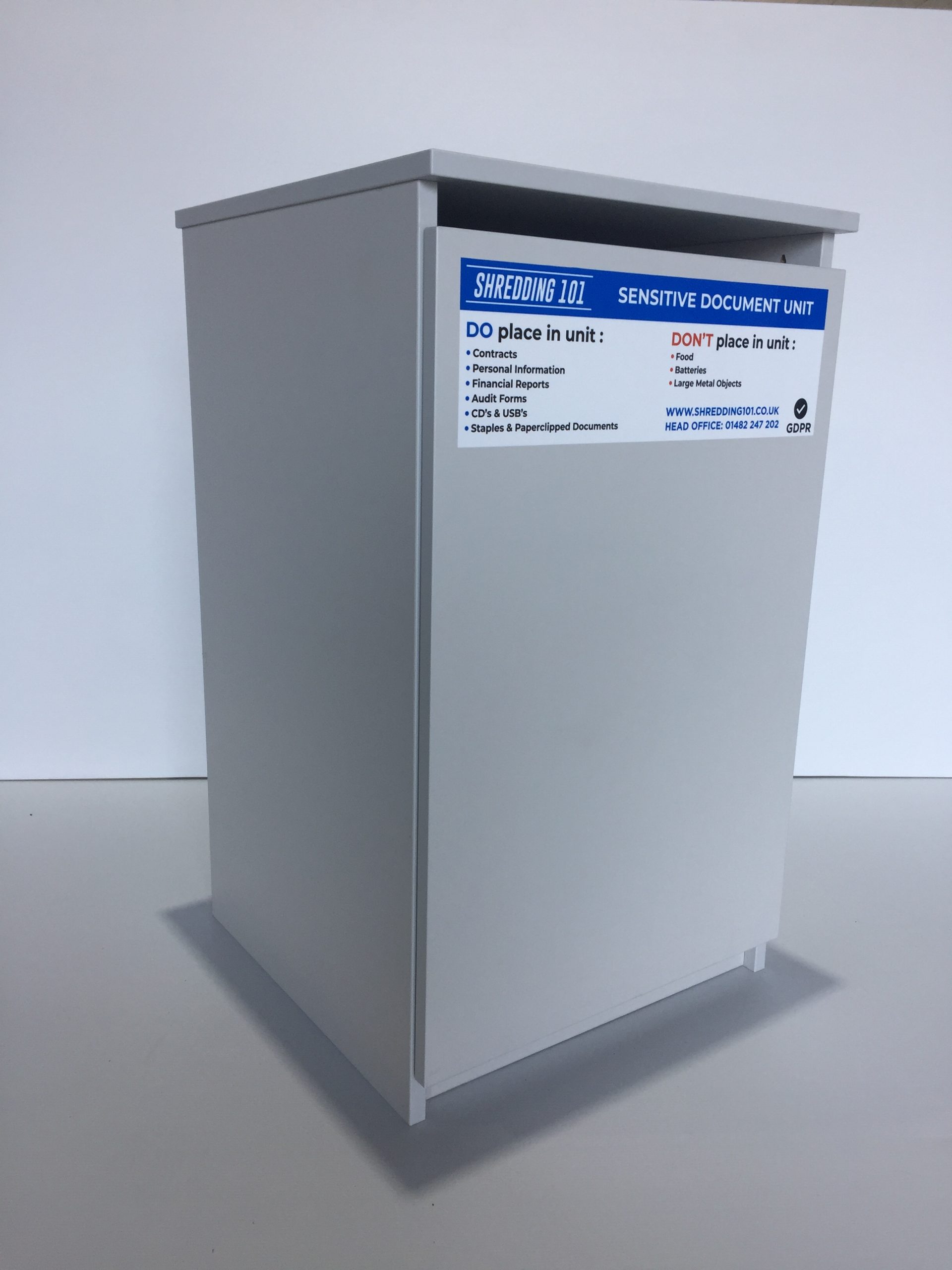How Much Paper Can You Fit In A Sack For Shredding?
20th June 2023
Keep Your Data Secure With A Confidential Waste Cabinet From Shredding 101
20th June 20235 Simple Tips To Secure Your Data!
Let’s look at a handful of simple ways in which you can help to protect yourself and your business reputation from the scourge of identity theft!
Identity theft comes in many different forms; in today’s digital world, it’s surprisingly easy for fraudsters to obtain enough information about yourself or your company to commit a wide variety of unlawful acts. Therefore, securing your physical and electronic data has perhaps never been more important.
1 – Make sure your documents are secure!
Possibly the simplest and arguably the most effective way to protect your confidential documents is to keep them physically secure and locked away. Passports, insurance documents, birth certificates, bank statements, and other “priority” details should ideally be kept under lock and key, out of sight and in an obscure location.
2 – Shop safely Online!
Online shopping is so prevalent in the modern world as to be practically unavoidable. This makes it one of the easiest and most common ways for fraudsters to get a hold of your personal data. Make sure that you only use reputable companies and sites to make your online purchases; the simplest way to check is to look for the green padlock icon in the URL bar, and to make sure the web address starts with “https”. If either of these are missing, your data may not be encrypted, and the site may not be secure.
3 – Be on the look-out for Phone scams!
Telephone scams have existed practically since the telephone was invented, and while we are all aware of the dangers of releasing confidential details over the phone, it’s still all too easy to become complacent. Never give out your personal or banking details to an unexpected caller or over a text message.
4 - Don’t get netted by Phishing!
Similarly, be extra-vigilant regarding emails and messaging systems. Never click on unexpected links or open attachments in unexpected emails, even if the sender appears to be a legitimate source. You can also check the domain name of the sender is correct; fraudsters commonly use domain names that are similar to the legitimate source; they might be .com rather than .co.uk , or include the name of a reputable company like Microsoft.
5- Ensure that your confidential documents & electronic devices are properly destroyed.
Once you’re sure you no longer need documents, hard drives, old mobile phones and the like, make sure you have them professionally destroyed. Using an expert shredding and data destruction firm (like ourselves), you have the peace of mind that your personal information has been thoroughly and completely disposed of. This is particularly important for businesses; not only does it cost valuable man-hours to destroy your data in-house, it could lead to unwelcome legal consequences or damage to your business reputation if it’s not done correctly.




